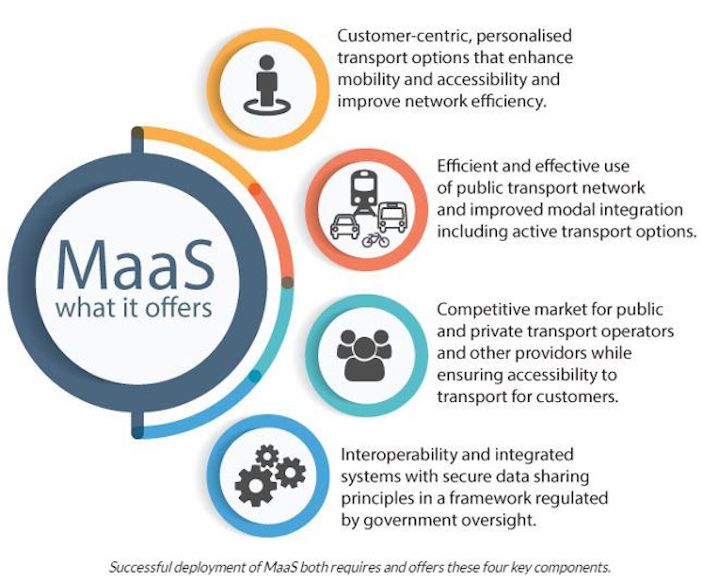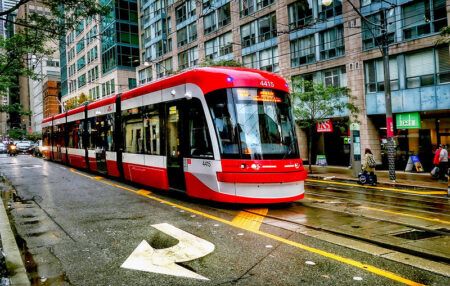A new study coordinated through the iMOVE Cooperative Research Center has revealed that most young and middle-aged Australians are ready to ditch car ownership and instead they may use monthly subscriptions for bundled transportation services including trains, buses, taxis, ridesharing, and automated vehicle door-to-door drop-offs.
The iMOVE project report surveyed more than 4,000 Australians about their willingness to use the Mobility as a Service (MaaS) concept, an emerging global trend where transportation users are shifting away from personally-owned vehicles toward subscription-based mobility solutions.
These services combine public and private transportation providers through a single unified gateway, for example by using a smart phone app to book and pay in the one place. The MaaS concept is to offer people convenient mobility solutions based on their individual travel needs, without the requirement to own a car and to only pay for the trips they make.
MaaS systems are already being trialled and introduced around the world including in Finland, the UK, the USA, Germany, Austria, France, Italy and China. Innovative technology companies such as MaaS Global with its app-based Whim Unlimited service in Finland and the UK, and Sweden’s UbiGo are at the forefront of the rapidly-growing market.
MaaS as a fully integrated suite of services has yet to be trialled in Australia. However, based on the survey data, 46% of Australians are predicted to be ready to adopt a MaaS pay-as-you-go scheme with younger people showing a significantly stronger preference than those over 65, with 40% of under 30s interested in using the system compared to just 14% of over 65s.
The report notes that younger transportation users are less likely to hold a driver’s license, which can explain their interest in MaaS services. Around 23% of 18 to 25-year-olds in New South Wales and Victoria do not have one, while in Western Australia that figure jumps to 41%.
“The finding from the research that 87% of some survey respondents would be immediately interested in purchasing MaaS was extremely positive,” said Susan Harris, CEO of ITS Australia which led the project. “We believe this data will assist government and industry in developing MaaS products for Australians, based on who they are and what they really want.”
Based on the new research findings, iMOVE’s managing director, Ian Christensen, said, “Australia is ready for MaaS, especially tech-savvy younger people. Quite significantly, the study revealed it is young and middle-aged individuals who are keen to use MaaS. It confirms many other studies that millennials, or those born roughly between 1980 and 2000, are much less dependent than previous generations on the private car as a means of transport. This is unlike the baby boomers, for whom car ownership meant freedom and was a rite of passage.”
Christensen also noted, “Historically, Australians have always been very attached to their cars, but the data shows this is changing with newer generations. A trend away from private car ownership could offer many benefits to society, including helping to reduce congestion and emissions and also improving the safety and amenity of our cities.”





